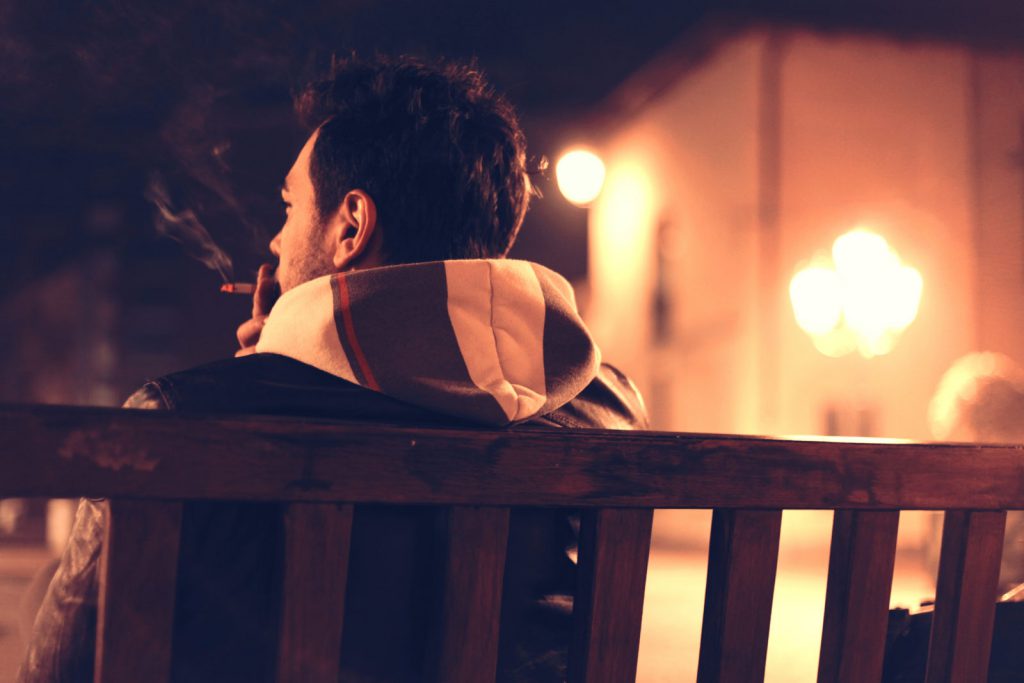
Published August 30, 2017
Editor’s Note: In a series of columns, Pascal-Emmanuel Gobry, a Paris-based conservative and a fellow at the Ethics and Public Policy Center, will write on an alarming trend, which he calls the Francification of America.
What is America’s most pressing social problem? Depending on whom you ask, you will get different answers: secularization, racial discrimination, long-term unemployment, drugs, technological stagnation, family breakdown, cultural decline . . . All of those are serious ills, but I would like to submit a different answer — one linked to all the above, one that gets virtually no public attention: loneliness.
Once in a while, America’s loneliness epidemic comes in for some consideration. Bowling Alone, the book by the excellent sociologist Robert Putnam, became a best-seller and has stuck around the zeitgeist somewhat. Putnam blamed technology and its atomizing effects — and he was writing in 2000, before pornography came in free-streaming HD video, before social media was all-encompassing, when easy entertainment options like Netflix or video games were much less advanced and therefore less addictive.
We don’t seem to be alarmed nearly as much as we should be, so it’s worth rehearsing the facts. Putnam has chronicled the historically low membership levels in all sorts of social organizations, from (you guessed it) bowling leagues to churches to labor unions to PTAs to churches to the Boy Scouts.
A 2014 study by the National Science Foundation found that one in four Americans said they had no one with whom they could talk about their personal troubles or triumphs. The number doubles to more than half of Americans if immediate family is not counted. That this stat alone doesn’t make us run around screaming as if our hair were on fire boggles the mind — and this itself should be alarming: We’ve become inured to the new loneliness, like the fish who asks, “What’s water?”
This state of the matter contrasts notably with one of the characteristics that most astonished Alexis de Tocqueville when he visited from France: Americans’ tendency to form voluntary associations for nearly anything and everything you could name. That key American trait is eroding and turning in a French direction.
Loneliness has impacts too manifold to name. On public health, on well-being, on social life (to speak tautologically), on the economy (given the voluminous evidence that informal exchange of ideas is central to innovation). It’s easy to see how the other social problems I’ve noted, from family breakdown to drug addiction to secularization, can both be caused by loneliness and in turn reinforce it, in a socially destructive cycle.
But the impact is also political. A famous social-science finding that has been replicated over and over is that levels of social trust are linked to politics and economics. Rule of law, democracy, and capitalism seem to require high levels of social trust. Societies with lower levels of social trust, meanwhile, tend to become corrupt, authoritarian, and economically stagnant. And it doesn’t take a Ph.D. to figure out that pervasive loneliness leads to lower levels of social trust. For the purposes of this Francification series, another noteworthy, also repeated, finding, is that France tends to have much lower levels of social trust relative to comparable advanced countries.
It’s often been remarked that “Trumpism” represents something different from conservatism as traditionally understood. That something might be called “conservatism in a lonely society.” Conservatism offers up Burke’s little platoons as the engines of social progress, but in a society turned lonely, that offer becomes meaningless because it stops being relevant to people’s everyday experiences. The last credible-seeming way to maintain social order, then, becomes what Donald Trump has promised: lawless authoritarianism. Good luck!
— Pascal-Emmanuel Gobry, a Paris-based writer, is a fellow at the Ethics and Public Policy Center.








